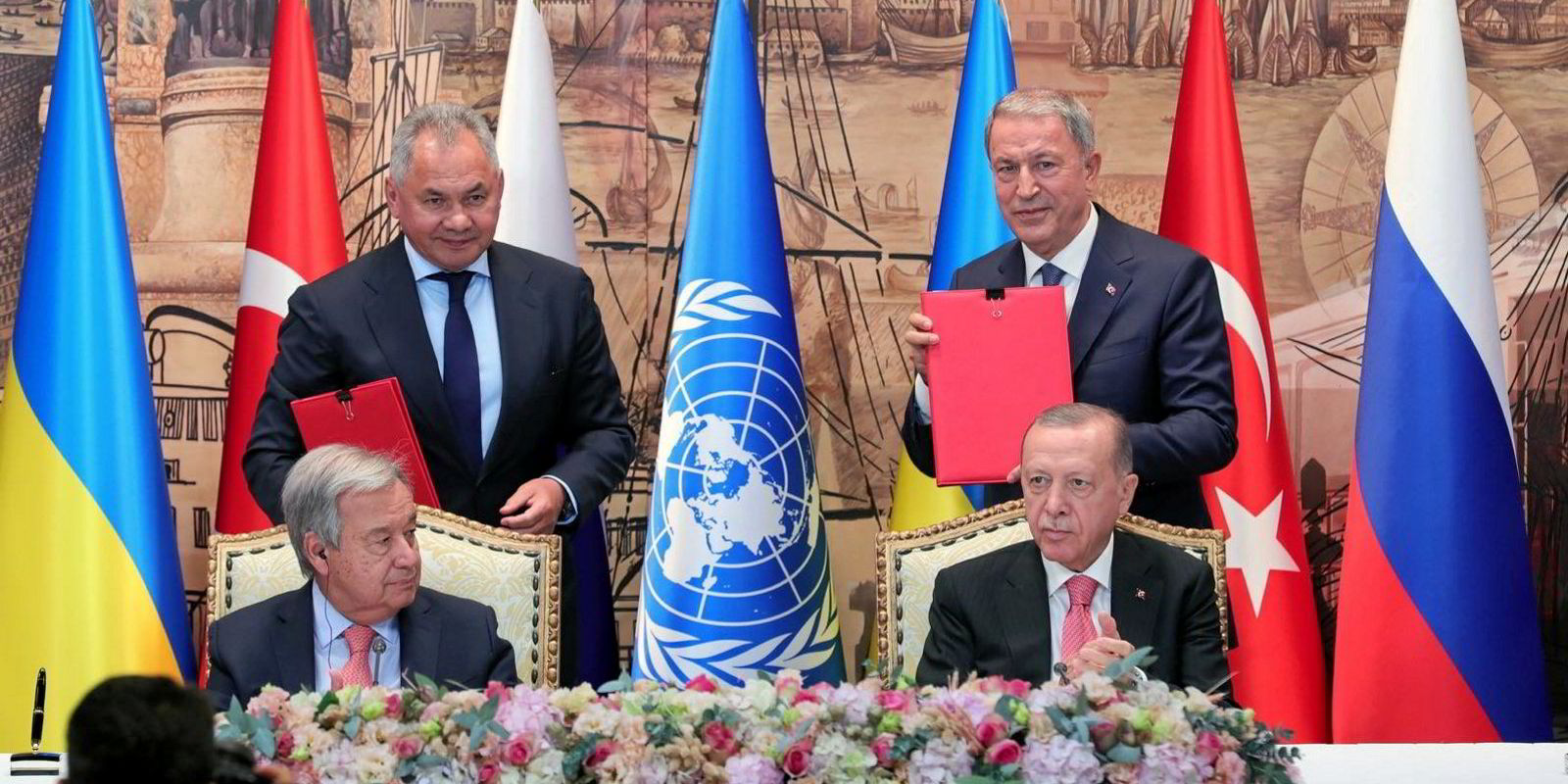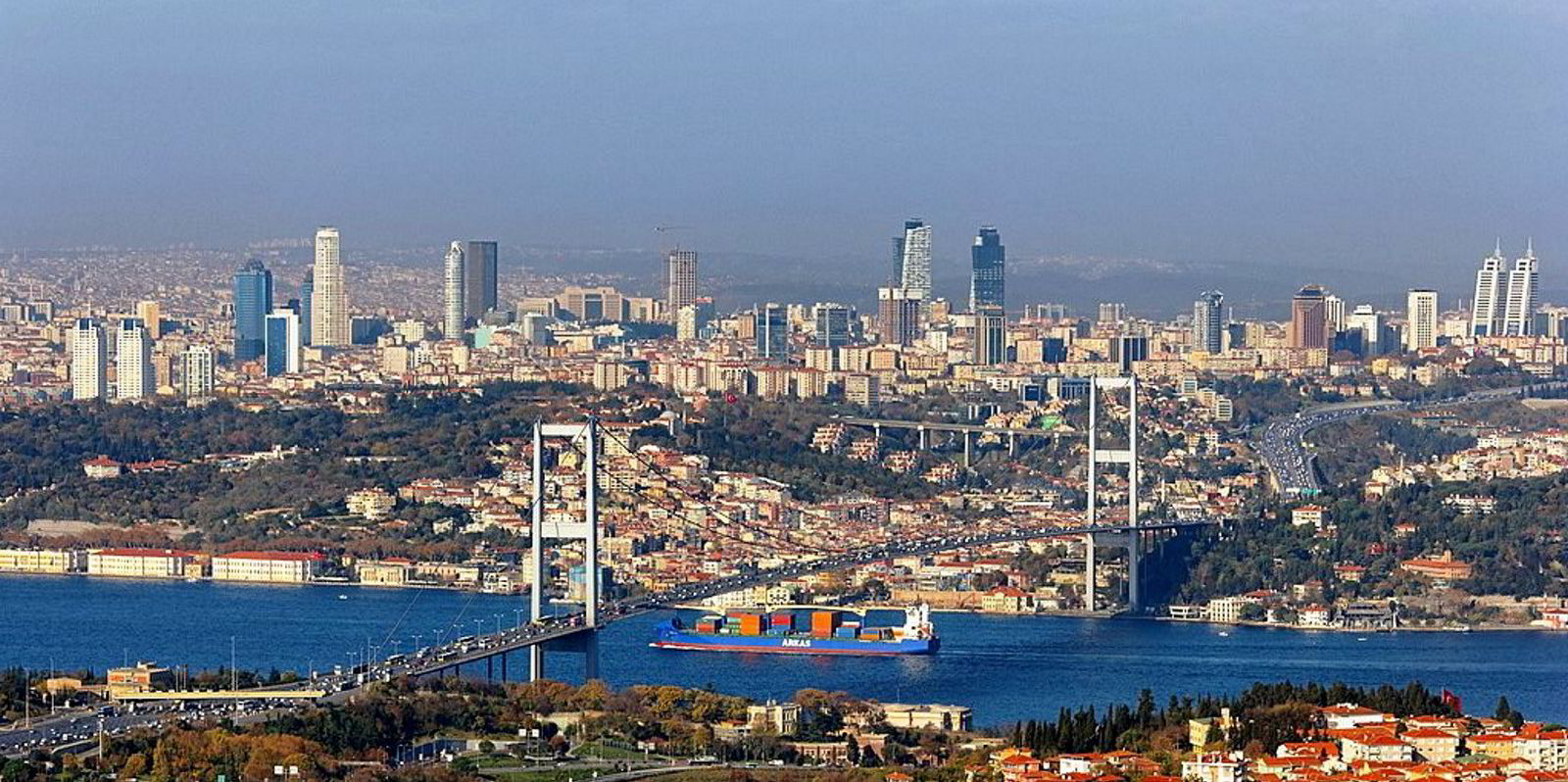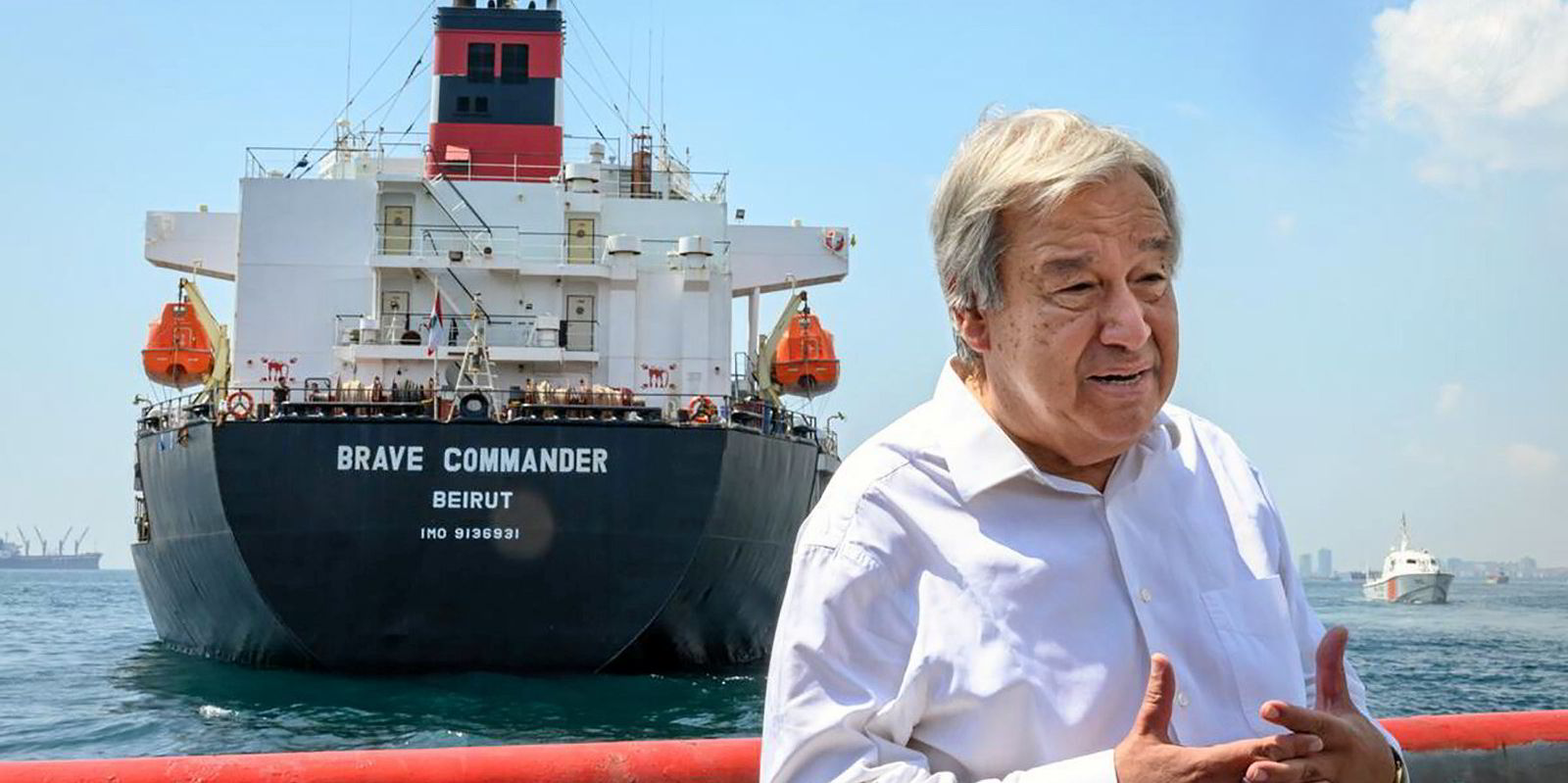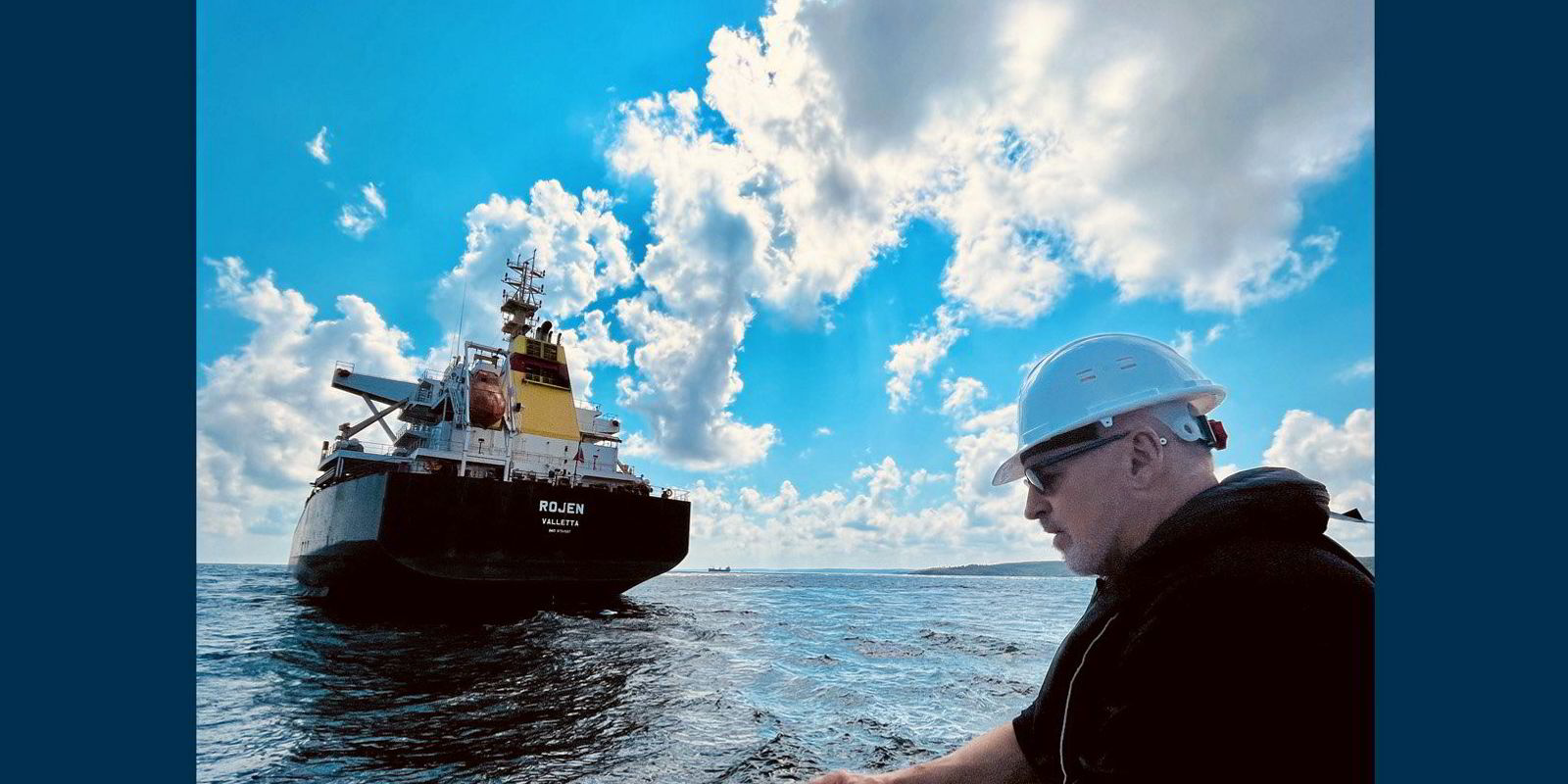United Nations-led inspectors in Istanbul cleared vessels bound for Ukraine on Thursday, the first ships to be allowed to sail to the war-torn country in almost two weeks.
Three new inbound bulkers were approved, heading to Odesa and Chornomorsk, according to UN officials. They were the 34,400-dwt Garnet (built 2010), the 30,600-dwt F-Line (built 2007) and the 34,300-dwt Super Martinelli (built 2010).
Another two vessels are preparing for inspections.
This is the first tangible sign of the Black Sea Grain Initiative, the scheme for exporting Ukrainian foodstuffs, springing back to life after it was extended on Wednesday in the nick of time.
Russia had long threatened to refuse renewal on 18 May, in protest at the UN’s failure to help soften Western sanctions against Moscow’s own exports of grain and fertiliser — as was envisaged in the original grain corridor deal in July last year.
However, Moscow relented in the end, halfheartedly consenting on Wednesday to extend the scheme until 17 July.
Some speculated that Russian President Vladimir Putin backed down as a favour to Recep Tayyip Erdogan — Turkey’s leader and a potential ally who helped broker last year’s deal and could use a diplomatic victory as he seeks reelection on 28 May.
A Russian government statement on Thursday seemed to be confirming that view.
Moscow agreed to extend the initiative “in response to appeals, primarily from Turkish partners as parties to the agreement”, the Russian foreign ministry said.
The scheme continues on a very tight leash.

The grain initiative will go on “without any changes”, the Russian foreign ministry said. This suggests that Ukrainian demands to widen the scheme to cover more than three ports — Odesa, Chornomorsk and Yuzhny/Pivdennyi — have fallen flat.
Russia, at the same time leaves little doubt that the grain corridor will be dead in July, unless its own agricultural and fertiliSer exports are helped.
The resumption of the Togliatti-Odesa ammonia pipeline was one of several conditions that Russia has been posing since March, when it again reluctantly agreed to extend the Black Sea grain deal for just two months.
Other conditions include the return of the Russian Agricultural Bank to the interbank SWIFT payment system, the resumption of supplies to Russia of agricultural machinery and spare parts, the lifting of restrictions on insurance and access to ports for related Russian ships and cargo, and the unblocking of accounts and financial activities of Russian fertiliser companies.
“We are forced to remind again [that]… without the fulfilment of these requirements, there is no question of any expansion of the ‘Black Sea Initiative’, in principle, and the agreement itself will be terminated after July 17,” the foreign ministry said.
Russia describes the Istanbul-based scheme as the “Black Sea Initiative”, leaving the word “grain” out to highlight that Ukrainian grain is not its only component.
In a recent statement, the UN has accepted that terminology.
No foot-dragging, please
Ukrainian officials are meanwhile urging the UN to make sure that Russian foot-dragging in approving new ships under will not be repeated.
“[The] main challenge now is to make [the initiative] efficient by cancellation [of] artificial barriers,” the country’s infrastructure minister Oleksandr Kubrakov tweeted on Wednesday.
As of midday Thursday, other Ukrainian government officials were already complaining why it is taking so long to approve new ships at the initiative’s Joint Coordination Centre (JCC) in Istanbul.
Russian procrastination had already led to long ship queues of inbound vessels in the Bosphorus, with average daily inspections occasionally dropping from four to two.
UN officials seem to be sharing the concerns about a smooth implementation of the scheme going forward.
“We call on the parties to ensure that the authorisation of new vessels is done for all three [Ukrainian] ports to make use of capacity and meet industry demands,” UN spokesman Farhan Haq said in New York on Thursday.
All this suggests that, even when formally renewed, the initiative remains on a knife’s edge.
Russia can always suspend it at short notice. It already briefly did so last October, after claiming that Ukrainian drones had flown through the corridor to attack Russian war vessels.
Moscow backed down after receiving Turkish assurances that this would not be repeated.





